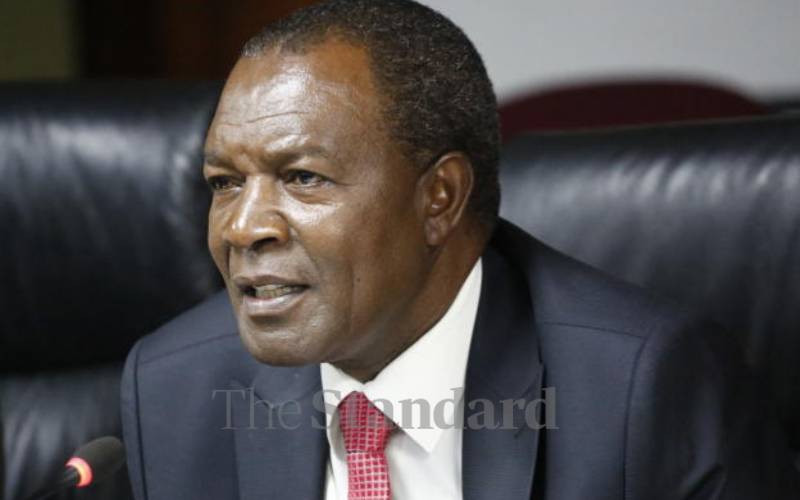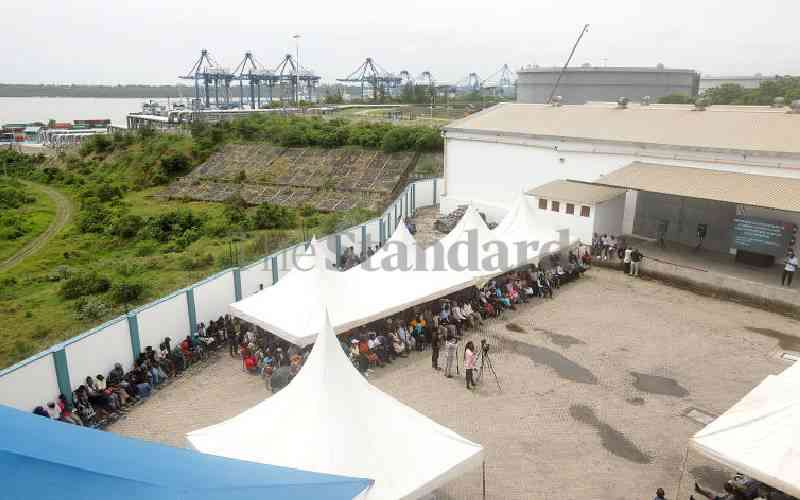
The National Treasury is exploring modalities to further ease remittances by Kenyans living and working abroad as it eyes more cash flows into the country from the diaspora.
Kenyans in the diaspora remitted Sh523 billion in 2022, up from Sh460.41 billion in 2021.
The money has over the years maintained a growth trend, with diaspora remittances becoming the country's largest foreign exchange earner, overtaking traditional exports such as tea, horticulture and tourism.
Treasury Cabinet Secretary Njuguna Ndung'u said there were plans to look into the cash transfer platforms that Kenyans abroad use to send money home as well as the cost they incur.
This is even as he insisted that the diaspora should consider pumping more money into investments as opposed to purely sending money home for consumption.
He said there were investment tools available to the diaspora that include government bonds.
"Diaspora remittances have over time increased significantly. Today, remittances are much higher than other export streams that we have in the country. They have had a major impact on livelihoods, contributing to household essentials such as paying school fees."
- PS Kimtai: Treasury ignored Ruto's request for health project funds
- Key health projects at risk as Treasury cuts budget
Keep Reading
Cushion families
"Data also shows that whenever the country is going through hardships, the remittances go up meaning that Kenyans abroad are cushioning their families back home from difficulties," said Prof Ndung'u on Thursday when he appeared before the National Assembly's Committee on Diaspora Affairs and Migrant Workers.
"CBK is considering doing another study, especially on the channels used to remit funds and the cost incurred in sending the money. There have been developments - payments are becoming more efficient."
He noted that a previous study by CBK showed that the cost of transferring cash into the country stood at between four and five per cent of the money being transacted.
This is slightly higher for Kenyans transacting from Europe and Asia, where the cost was six per cent of the value of the money.
While Ndung'u noted that this was still high, the costs had come down over time. The payment systems, he noted, had also significantly improved and made remitting money both for investments as well as to family a lot easier.
"The cost is still high but a lot better than what was in place in the 1990s," he said.
He added that Kenya is exploring government-to-government agreements that would give migrant workers more opportunities across different countries.
Responding to MPs' questions on the mistreatment of Kenyans in Gulf countries, Ndung'u noted that there is a need to get to the root of the challenges but also noted that there could be Kenyans who may have been in breach of agreements with their employers.
"On the complaints among Kenyans in the Middle East ... I am sympathetic to that and we have to find solutions. But we also have to understand that not everyone who goes out there is good, we also have a few bad eggs," he said.
 The Standard Group Plc is a multi-media organization with investments in media platforms spanning newspaper print
operations, television, radio broadcasting, digital and online services. The Standard Group is recognized as a
leading multi-media house in Kenya with a key influence in matters of national and international interest.
The Standard Group Plc is a multi-media organization with investments in media platforms spanning newspaper print
operations, television, radio broadcasting, digital and online services. The Standard Group is recognized as a
leading multi-media house in Kenya with a key influence in matters of national and international interest.











